Safe space
中国日报网 2025-01-07 11:06

Reader question:
Please explain “safe space” in this passage: Every time a man hears the word “provide,” they think it’s all about money. But you still need to provide honesty, love, trust, and a safe space for her to be vulnerable and feminine.
My comments:
“Safe space” refers to an environment where vulnerable people feel safe both physically and emotionally to be themselves – free from fear of bullying or discrimination.
Safe space is more than a physical safe place. One’s home may be a safe place – that is, if it’s a home of a loving and caring family. If the husband disrespects his wife and is prone to throwing fits, not to mention fists and elbows, then that home is not a safe place.
Moreover, if the husband does not care about his wife and children emotionally, then that home is not a “safe space” for the wife and their children.
Emotionally, the wife and children want a “safe space” where they can communicate freely without being verbally abused.
In our example, being a provider who gives women money is what a lot of men think of being a responsible partner. But women need more.
They also need their man to also provide “honesty, love, trust, and a safe space for her to be vulnerable and feminine”. They don’t want their man to be a brutish male chauvinist, for instance.
That’s a lot to ask for from a man, don’t you think?
I think it is, and I think it is necessary. But I want to focus on “safe space”, a metaphorical safe place for people who are weak and disadvantaged, such as women and children, minorities, people with disabilities, war veterans, rape victims, members of the LGBTQ+ community, etc. and so forth.
LGBTQ+?
That stands for lesbians, gays, bisexuals, transgender and queer, plus (+) other people who are prejudiced against due to their unusual sexual orientations and identities.
Anyways, “safe place” is where these people can talk about their trauma or difficulties without feeling threatened, bullied or generally being prejudiced against.
Normal grownup males sometimes gripe, too. They gripe that as society becomes more genteel and civilized, they no longer can get away with being rude and rough and with other boys-are-boys stuff. But there are few safe spaces for them to vent their gripes without being attacked from all sides.
That is true.
And that is a good thing.
Talking about boys being boys, how about growing a pair? The grownup males, being the dominant group in society, perhaps need some more growing up to do.
Or they can trade places with one of the above-mentioned weaker members of society and try to walk in their shoes for a change.
All right, let’s read a few media examples of “safe space”:
1. Small steps lead to big change.
It’s through small steps that Qlub Med is making its mark at the Kirk Kerkorian School of Medicine at UNLV. The student organization provides professional and personal support for LGBTQ+ students, faculty, and staff while also working to improve health care for the LGBTQ+ community both locally and outside of Las Vegas. The group serves as a safe space for students who are a part of the LGBTQ+ community.
Jon Andre Sabio Parrilla, who goes by Andre, is a member of the class of 2027 and has been in Qlub Med since his first semester of medical school. He is the organization’s president. Parrilla joined the organization because it aligned with why he wanted to become a physician. “Growing up, I never found a physician who looked like me or mirrored my lived experiences as a gay man. We, as an LGBTQ population, have significant health care disparities and inequities,” says Parrilla.
Parrilla delved deeper into these disparities and inequities during his time as a graduate student at Yale University, where he was pursuing a master’s in public health. For one of his projects, he looked at the risk for cardiovascular disease among gay, bisexual, and queer men of color. Parrilla states, “I learned that a lot of the disparities exist because of the lack of access to health care among my community. I wanted to become a physician who will work to serve that community and create public health interventions that will mitigate those disparities.”
Parrilla is not alone in wanting to help fix these disparities. He states that Qlub Med “is looking to bridge that gap as well as bring people from our community to talk about the issues that affect our community disproportionately.”
- Medical Student Group Creates Safe Space for LGBTQ+ Community, UNLV.edu, June 25, 2024.
2. Bluesky is the digital place to be for anyone who considers themselves a card-carrying member of “The Resistance” to Donald Trump and/or an Elon Musk hater. Spend five minutes on the app, and that is clear.
In a matter of weeks, the social platform has enjoyed rapid growth as left-leaning X users – including prominent media pundits and Hollywood celebrities – flee Musk’s app. The reason? Trump, who Musk publicly backed and spent more than $100 million to help get back into the White House, won the election.
Now, to boycott the Musk-Trump alliance, disenchanted X users are turning to Bluesky as their new “Blue Heaven,” as “Sons of Anarchy” actor Chad Lindberg put it.
For those who haven’t explored Blue Heaven yet, here’s a taste of what’s on the app:
“Star Wars” star Mark Hammill joined the app on Sunday. He announced his arrival by sharing a photoshopped newspaper dubbed “The Resistance” (Issue #1) with his picture included. The “paper” includes a write-up that says Hamill is “known for his sharp wit and unwavering support for progressive causes.”
Hamill’s X account, where he was frequently critical of Trump and shared his support for Kamala Harris, hasn’t been active since the day after Election Day. His Bluesky account has nearly 500,000 followers by Tuesday morning.
Other celebs who have made the switch include: Gabrielle Union, who announced her exit from X with a photoshopped letter on Friday, Stephen King, Ben Stiller, who posts a lot about his New York Knicks, and Barbra Streisand.
There’s also a laundry list of media personalities who have taken their talents to Bluesky. The Washington Post’s Jen Rubin, MSNBC’s Katie Phang, former MSNBC host Medhi Hasan, MSNBC’s Joy Reid, and former CNN host Don Lemon. They’ve all had a fair amount to say about Trump, the election, and Musk, since joining Bluesky.
...
In short: Bluesky is a safe space for disaffected X users to go and share their anti-Musk and anti-Trump thoughts. It’ll be worth seeing if the app can sustain its post-election momentum and build a formidable alternative to X, which Musk has said is experiencing “all-time high” usage in the past two weeks.
- Bluesky Is Becoming ‘Blue Heaven’ for ‘The Resistance’ to Trump and Musk, TheWrap.com, November 19, 2024.
3. A charity that offers support to victims of abuse has said that it will provide a safe space and critical resources for people in need during the holiday season.
The Centre Against Abuse said intimate partner abuse often escalates at this time of year, and survivors might feel that there are no alternatives for help.
Laurie Shiell, its executive director, explained that anyone can be affected by domestic abuse.
She added that the “pervasive issue” can have devastating emotional, physical and psychological effects on survivors.
Ms Shiell said: “The added stress of financial pressures, increased time spent at home and heightened expectations can exacerbate abusive behaviours.
“Survivors may feel trapped, with fewer opportunities to seek help due to family obligations or reduced access to support services.
“Survivors often speak about not wanting to burden others with their problems at this time, so they suffer in silence.”
The charity said it understands the unique challenges that can come with the season.
Ms Shiell added: “Whether it’s emotional, physical, financial, sexual or psychological abuse, we are here to provide a safe space and critical resources for those in need.”
The CAA said survivors of abuse often find themselves with greater financial burdens when they leave an abuser as many spend large sums of money on medical bills.
Ms Shiell added: “While many have insurance, the co-pay at times can be exorbitant.”
She said that survivors must often bear the cost to replace items such as phones.
They can also shoulder the responsibility of carrying out repairs to household items and vehicles that have been damaged or ruined by an abuser.
Ms Shiell said: “These unforeseen financial responsibilities are economically detrimental to many survivors.”
She encouraged people to support the charity’s programmes, which offer “hope, safety and a chance for survivors to reclaim their lives and improve the lives of their children”.
- Providing a safe space for abuse victims at Christmas, RoyalGazette.com, December 12, 2024.
本文仅代表作者本人观点,与本网立场无关。欢迎大家讨论学术问题,尊重他人,禁止人身攻击和发布一切违反国家现行法律法规的内容。
About the author:

Zhang Xin is Trainer at chinadaily.com.cn. He has been with China Daily since 1988, when he graduated from Beijing Foreign Studies University. Write him at: zhangxin@chinadaily.com.cn, or raise a question for potential use in a future column.
(作者:张欣)









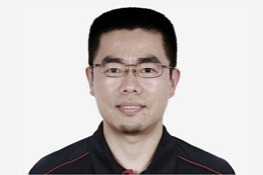
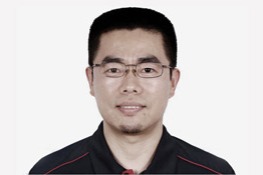
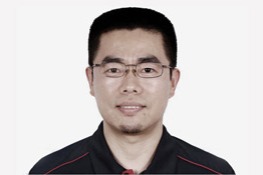
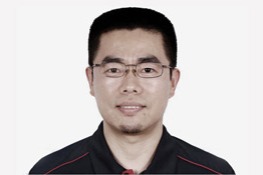
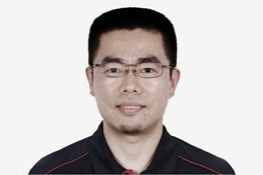



 英语点津微信
英语点津微信 双语小程序
双语小程序